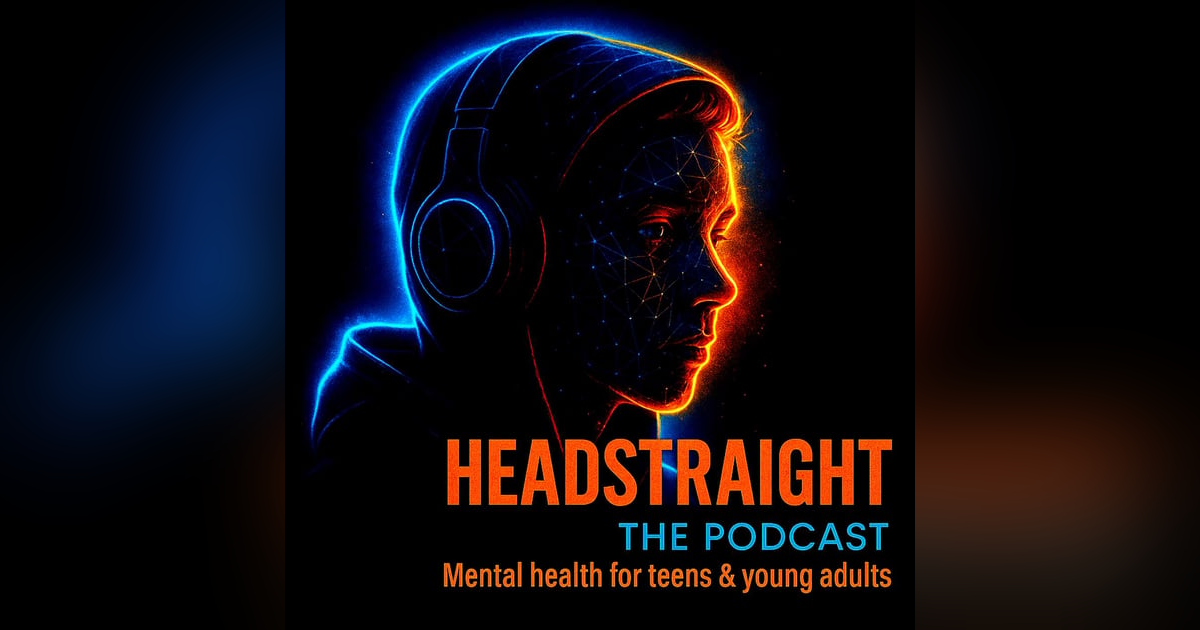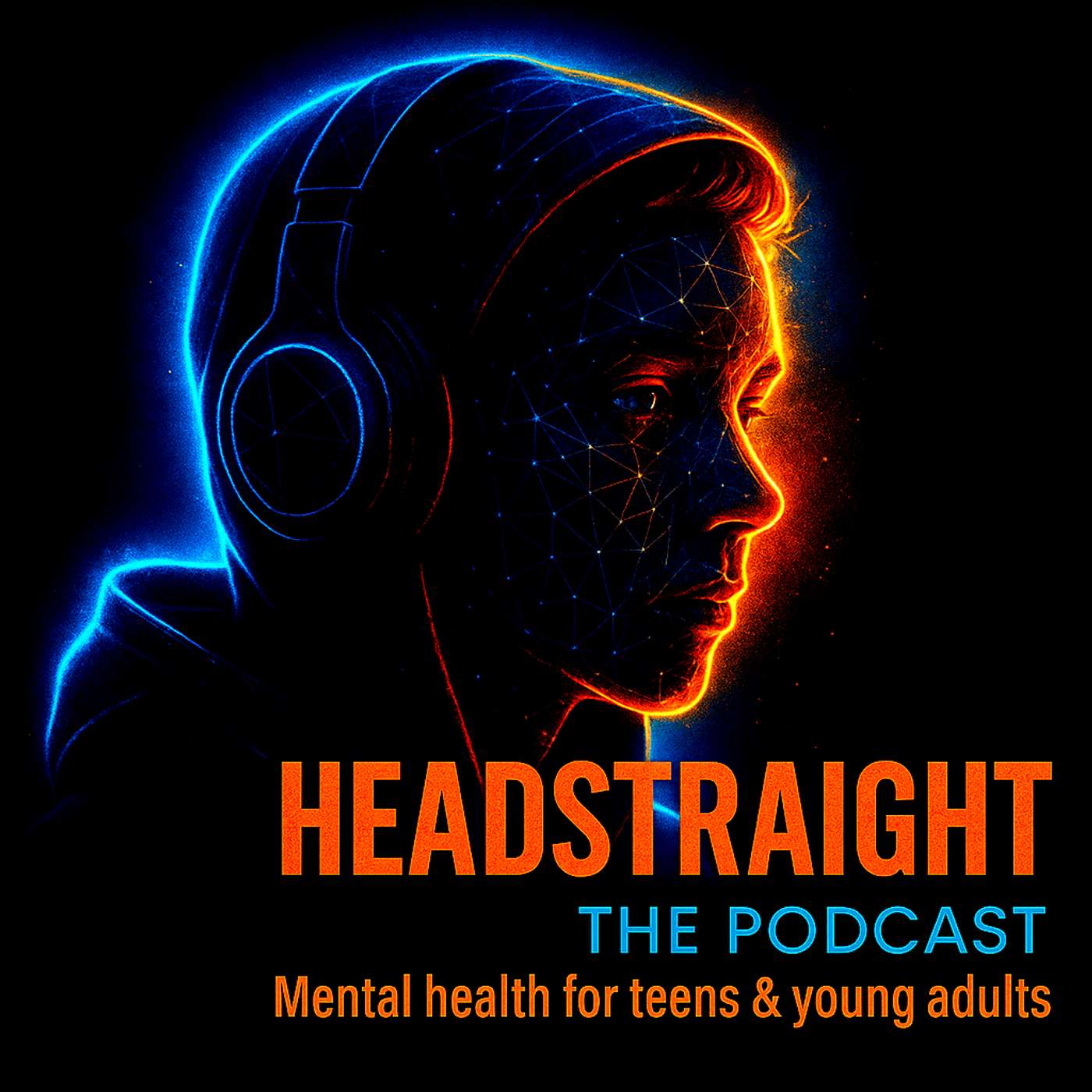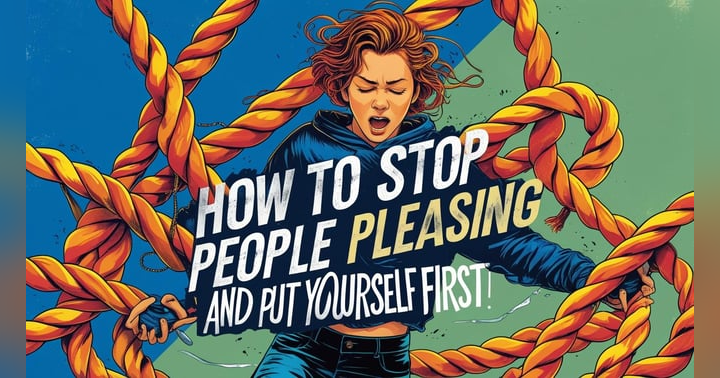The Real Reason You Can’t Put Yourself First


In this episode of the teen mental health podcast Headstraight, we explore the complex feelings behind always putting yourself last. If you often say yes when you really want to say no, you’re not alone. This conversation focuses on people pleasing, guilt trips, and how these behaviors impact your emotional wellbeing as a teen.
We dive into why you might have learned to put others first as a survival strategy and how it could be affecting your mental health. This episode offers practical guidance to help you set boundaries, say no without guilt, and develop healthier habits to support your self-respect and emotional wellbeing.
Join Mark Taylor for real talk on teen mental health, as we challenge you to take small but powerful steps toward putting yourself first. Because prioritizing your needs is not selfish—it's essential for your growth and well-being.
Want the Cheet Sheet? Click on the Link or copy and paste the following into your browser:
https://docs.google.com/document/d/1wCqJoK6OffPxfb1HT_YoXckfnCald7j3/edit?usp=sharing
Got something to say? - come send me a message at www.headstraight.co.uk/contact/
or send me a voice note at www.headstraight.co.uk/voicemail/
Click here if you want more info about the host
If you need more information about helplines, services or what do to if you're in a crisis, take a look at our resource page: https://www.headstraight.co.uk/resources
Click here to view the episode transcript.
Mark Taylor:
My name's Mark, and you're listening to Head Straight. Hello, you lot, and welcome back. Let's get straight into it. How many times have you said yes when everything in you wants to just say no? You're drained, you're stretched thin, but you still show up, still smile, still do what's expected.
Mark Taylor:
And when you do try to put yourself first, that wave of guilt hits like a punch in the gut. You feel selfish. You're drained, you're stretched thin, but you still show up, you still smile, you still do what's expected. And when you do try to put yourself first, that wave of guilt hits like a punch in the gut. You feel selfish, awkward, like you've broken some kind of unspoken rule.
Mark Taylor:
Now if this sounds close to home, then this episode is just for you because we're not just talking about being a nice person. We're talking about people pleasing, that habit of putting everyone else first, even when it's costing you your peace, your energy and your sense of self. And we're going to flip that script today. Now, in the last episode, we looked inward at the patterns that you repeat, even when they hurt. The inner loops that trap you in self doubt and sabotage.
Mark Taylor:
This time, we're turning that lens outwards because one of the most common and quietest forms of self sabotage, consistently making yourself the lowest priority in your own life. This episode is about those subtle ways that we shrink, sacrifice, and stay silent, and how to start reclaiming your space without losing your compassion. So let's break it down. Here's the first thing to get straight. People pleasing is not a personality trait.
Mark Taylor:
Let's just kill that one dead right now. It's a defence mechanism. If you've ever felt afraid of being a burden or hyper aware of other people's moods or responsible for making everything okay, then the chances are that you weren't just being helpful, you were trying to stay safe. Maybe you grew up in a house where saying no came with a backlash, your needs were ignored unless you earned attention, or peace was fragile so you learnt not to rock the boat. In those environments, pleasing people became a way to survive.
Mark Taylor:
You learnt to scan the room before you speak, you learnt that silence is safer than honesty, and eventually that becomes normal. But that's not who you are, that's who you became to avoid harm. So I want you to just think for a second. When you think about love or worth, what were you taught that mattered the most? Being real or being easy?
Mark Taylor:
Now here's the catch. People pleasing isn't always loud or obvious. Sometimes it looks like being the chill one, the reliable one, the go with the flow mate. But underneath that, you're saying I'm fine when you're really not. Because maybe you cancel your own plans the moment someone else needs something.
Mark Taylor:
You over apologise just for taking up space. And do know what else happens? You get resentful, but swallow it because you don't want to make things uncomfortable. Now you're not just managing tasks, you're managing other people's emotions. And when that becomes your default, choosing yourself feels dangerous like betrayal.
Mark Taylor:
Even when no one's asking you to sacrifice yourself, your nervous system still thinks that's the only safe option you have. Now here's a lightbulb moment. If you've never seen someone set a boundary without backlash, no wonder it feels risky to try it for yourself. Now let's talk about that guilt. You know the one.
Mark Taylor:
You say no even gently and your brain immediately lights up with that was harsh, you've been difficult, they're going to be upset. But here's the deal, the guilt doesn't mean that you've done something wrong. It means that you're breaking a role that you've played for a really long time. Guilts often your body's alarm system going off, not because you've hurt someone, because you've stepped outside of the script that you normally live within. And that's all it is.
Mark Taylor:
It's called conditioning. The more you challenge it, the quieter it's gonna get. But at first, it's gonna scream. So let me just set you a quick challenge. Next time guilt shows up, I just want you to stop and ask, am I actually hurting someone or just disappointing a version of me that was always easy and available?
Mark Taylor:
Now this is where we get into the how. Not just self care stuff, real grounded action. Because choosing yourself won't feel natural at first, but it can become a habit. The first tool that you can use is say a direct no without the apology tour. You don't owe long explanations or backup plans.
Mark Taylor:
Try, I'm not available for that actually. Thanks for thinking of me, but I'm gonna give it a pass. Yeah. That doesn't really work for me right now. The trick is keep it short, keep it clear, and no need to soften it with guilt.
Mark Taylor:
Here's another important one. Schedule something just for you. Block it in your calendar like a nonnegotiable. And it can be anything, a walk, a quick nap in the middle of the day, a solo meal, time with your book, your music, or just your silence. And when someone tries to claim that time, just say, I've already got plans.
Mark Taylor:
Because you actually have with yourself. I also want you to let guilt come and stay anyway. Don't fight the guilt. Expect it because it's gonna come. When it does, let it rise.
Mark Taylor:
Name it for what it is and don't act on it because you're rewiring your brain and that's meant to feel awkward. But just stop and think for a second. If you knew that you weren't going to get judged for it, what would you say no to today? So let me set you a challenge. I want you to put all of this into practice.
Mark Taylor:
I want you to name one situation where you always put yourself last. And then I want you to interrupt that situation once. Use one clear no or say what you want for a change. And let the guilt come, but don't let it make the decision for you. I want you to set by thirty minutes or an hour this week that's just for you.
Mark Taylor:
Not for anyone else, not doing anything else at the same time, and I want you to do it without guilt. This is how you start shifting your identity from a people pleaser to a self respecter. Now here's a pro tip. Download the cheat sheet from the show notes, screenshot it, stick it somewhere visible, and let it be your backup plan when the guilt starts to get loud. Now a little request from me.
Mark Taylor:
If you know someone who could do with hearing this, then maybe just send them the episode. Doesn't have to be a deep and meaningful conversation. It could just be a link with a message from you saying, this made me think of you. And that one message might mean more than you realize, and it just might help somebody else shift just slightly in a better direction. So in the next episode, we're going to be diving into confidence, but not the fake it till you make it rubbish, but getting into what real confidence feels like and how to build it from the inside out.
Mark Taylor:
Because you've spent far too much time proving yourself. But let's shift it. Now it's time for you to believe in yourself.













